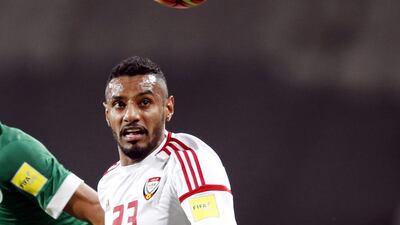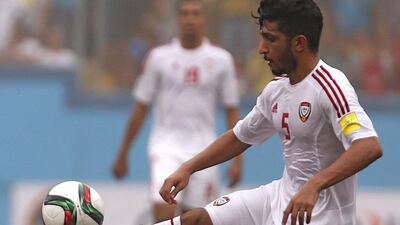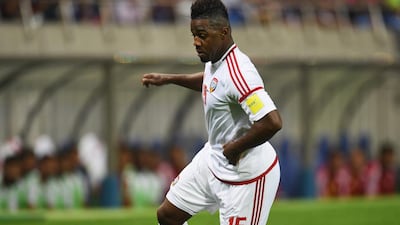The UAE host Asian champions Australia on Tuesday in their second Group B clash in the final stage of qualification for the 2018 World Cup. With Omar Abdulrahman the obvious principal threat to the visitors, John McAuley looks at four other areas that could help the UAE prosper.
Defend high balls better
When the two sides met at last year’s Asian Cup, the UAE conceded twice in the first 15 minutes, once from a corner and once when they failed to deal with a chipped cross. With it, the semi-final was effectively over. Centre-backs Mohanad Salem and Ismail Ahmed were colossal in last week’s victory in Japan, but need help from teammates against a physically robust Australia. That could explain imposing full-back Mohammed Ahmed’s continued inclusion.
Have Amer Abdulrahman up his game
The UAE’s other Abdulrahman has long been considered one of the most important cogs in Mahdi Ali’s first XI, a midfield metronome who retains possession and creates space with his clever, probing passes. However, Abdulrahman was not on top form against Japan, and has not really been for the past year. With Australia’s pressing and power in midfield, he will have to improve significantly to help teammate Khamis Esmail in a pivotal area of the pitch.
Let Ismail Al Hammadi off the leash
A regular performer at UAE champions Al Ahli, the diminutive winger has not always featured consistently for the national team. Mahdi Ali left out Al Hammadi the last time the two sides met, and the UAE missed his directness and ability to beat a man. He was excellent against Japan, always willing to run with the ball and take on an opponent. Al Hammadi won the penalty to set up the winner. He deserves to start again.
Get Ali Mabkhout firing again
Top scorer at last year’s Asian Cup, the UAE striker struggled in the last-four clash with Australia. Mabkhout found space at a premium, as Ange Postecoglou’s men cut off the supply line and thus starved him of the ball. The Al Jazira forward was commendably tenacious against Japan last week, but rarely threatened the hosts’ goal. If he is on form, though, the twin threat of Mabkhout and Ahmed Khalil gives Australia a real headache.





